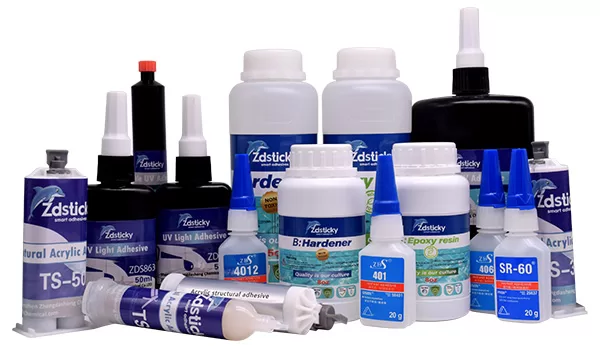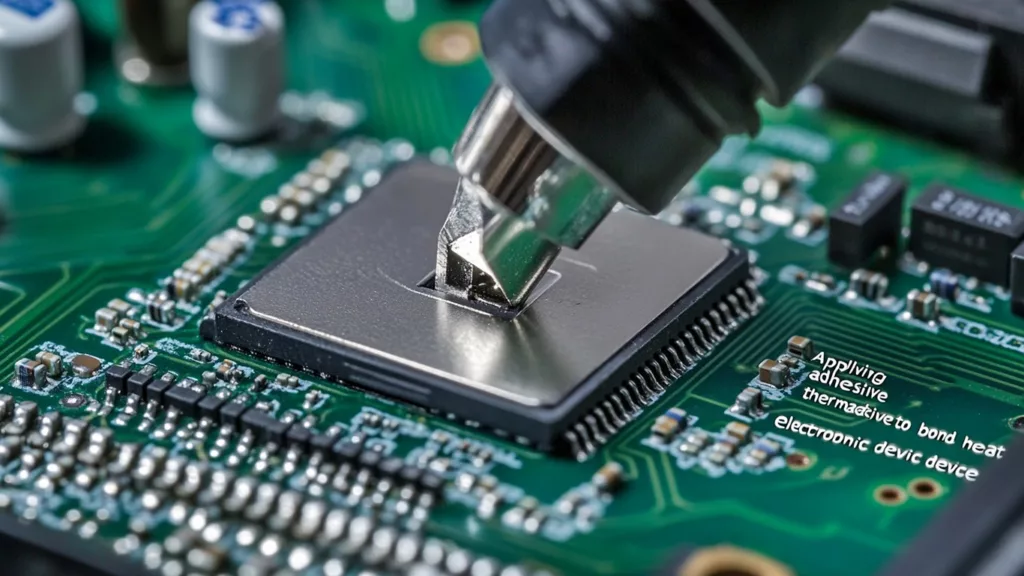Introduction
Silicone adhesives are silently transforming industries with their unique properties and versatile Applications of Silicone Adhesives. From sealing cracks in skyscrapers to enhancing the functionality of miniature medical devices, silicone adhesives are indispensable in modern manufacturing and design. Their ability to adapt to various requirements across electronics, healthcare, and construction has positioned them as a cornerstone in innovative engineering solutions. This article delves deep into their emerging applications and highlights the industries reaping their benefits.
![]()
What Are Silicone Adhesives?
Silicone adhesives are polymer-based bonding agents renowned for their exceptional flexibility, resilience, and reliability. Comprising silicon, oxygen, and organic groups, these adhesives excel under extreme conditions, including high temperatures and exposure to harsh chemicals.
Their widespread use stems from their unique capacity to maintain performance across diverse environments, making them a go-to solution for demanding applications.
Advantages of Silicone Adhesives
Silicone adhesives offer a suite of benefits that set them apart:
- Flexibility: Withstand mechanical stress and dynamic movements.
- Durability: Resist aging, UV exposure, and environmental degradation.
- Thermal Stability: Perform reliably in temperatures ranging from -60°C to 200°C.
- Chemical Resistance: Remain unaffected by oils, solvents, and other harsh chemicals.
These advantages explain why silicone adhesives are often the first choice in critical applications.
Applications of Silicone Adhesives in Electronics
![]()
In electronics, silicone adhesives are invaluable due to their ability to protect delicate components and improve device performance.
- Miniaturized Components: Provide precise bonding and encapsulation for small parts.
- Thermal Management: Dissipate heat in high-power electronic devices.
- Waterproofing: Enhance the longevity of devices by preventing moisture ingress.
- Design Flexibility: Enable the creation of foldable and flexible electronics.
As electronics become smaller and smarter, silicone adhesives remain critical to their success.
Role of Silicone Adhesives in Healthcare
![]()
The healthcare sector leverages silicone adhesives for their biocompatibility and gentle adhesion.
- Medical Devices: Provide reliable bonding for catheters, tubing, and diagnostic equipment.
- Wound Care: Enable breathable, skin-friendly adhesives for dressings.
- Wearable Technology: Ensure secure yet comfortable adherence for sensors and monitors.
- Implantable Systems: Use in long-term medical implants due to non-reactivity with biological tissues.
The growing trend of personalized and wearable healthcare solutions continues to fuel innovation in this space.
Silicone Adhesives in Construction
![]()
Silicone adhesives are pivotal in modern construction, delivering performance and sustainability.
- Sealing and Bonding: Used in glazing, cladding, and structural bonding.
- Energy Efficiency: Enhance the thermal insulation of buildings.
- Weather Resistance: Offer enduring solutions for exterior applications.
These properties help silicone adhesives address the demands of green and sustainable building practices.
High-Temperature Performance of Silicone Adhesives
Silicone adhesives shine in environments where extreme temperatures are the norm.
- Industrial Equipment: Provide reliable bonds in high-temperature machinery.
- Aerospace Applications: Resist the thermal stresses experienced during flight.
- Energy Systems: Seal and insulate components in high-temperature power systems.
Their unparalleled thermal stability makes them indispensable for industries requiring robust performance.
Waterproof and Weather-Resistant Properties
The waterproof and weather-resistant properties of silicone adhesives extend their usability to outdoor and marine environments.
- Marine Applications: Bond and seal underwater structures and boats.
- Outdoor Equipment: Protect against rain, UV radiation, and environmental stress.
- Infrastructure Maintenance: Repair bridges, tunnels, and other outdoor structures.
These features underscore their role in creating long-lasting, reliable solutions.
Innovative Uses in Automotive Industry

Automotive manufacturing increasingly relies on silicone adhesives to meet the industry’s evolving needs.
- Electronics Assembly: Bond sensors, cameras, and control modules.
- Lightweighting: Replace traditional fasteners for reduced vehicle weight.
- Durability: Ensure resistance to vibration and harsh operating conditions.
As vehicles become smarter and more eco-friendly, silicone adhesives are at the forefront of innovation.
Environmental Impact and Sustainability
Sustainability is a growing concern across industries, and silicone adhesives are no exception.
- Recyclability: Explore end-of-life recycling solutions for silicone materials.
- Eco-Friendly Formulations: Develop adhesives with reduced environmental impact.
- Sustainable Manufacturing: Incorporate renewable energy and materials in production processes.
Addressing these concerns is vital to aligning silicone adhesives with modern sustainability goals.
Emerging Trends in Silicone Adhesives
The field of silicone adhesives is witnessing a surge in innovative trends, driven by advancements in material science and technology.
- Smart Adhesives: Development of adhesives capable of sensing, adapting, or self-healing.
- Bio-Adhesives: Incorporation of biodegradable or biocompatible components.
- New Formulations: Enhanced adhesive formulations to optimize performance for specialized applications.
These trends aim to expand the boundaries of what silicone adhesives can achieve, opening doors to untapped markets.
Challenges in the Use of Silicone Adhesives
While silicone adhesives offer numerous advantages, they come with challenges:
- Cost: Higher initial cost compared to other adhesive types.
- Curing Time: Some formulations require extended curing periods.
- Compatibility Issues: Limited bonding effectiveness with certain materials.
Addressing these limitations is crucial for maximizing the potential of silicone adhesives.
Innovative Applications in Consumer Electronics
Silicone adhesives are revolutionizing consumer electronics by enabling sleek, durable, and functional designs.
- Flexible Screens: Bond components in foldable phones and displays.
- Sensors: Ensure reliable placement in smart home devices and wearables.
- Portability: Provide secure adhesion in lightweight and compact gadgets.
As consumer electronics evolve, silicone adhesives play a key role in ensuring their reliability and usability.
Role in Renewable Energy Solutions
The renewable energy sector is adopting silicone adhesives to support sustainable infrastructure.
- Solar Panels: Seal and bond photovoltaic cells, enhancing durability and efficiency.
- Wind Turbines: Secure components exposed to high mechanical stress and harsh weather.
- Battery Packs: Provide thermal management and vibration resistance in energy storage systems.
Silicone adhesives are pivotal in building resilient renewable energy solutions for the future.
Advancements in Manufacturing Techniques
Manufacturing processes for silicone adhesives are evolving, ensuring higher efficiency and precision.
- Improved Curing Technologies: Developments in UV and thermal curing for faster production.
- Automation: Integration of silicone adhesives in robotic assembly lines.
- Hybrid Materials: Combination with other materials for enhanced properties.
These advancements make silicone adhesives more accessible and versatile for various industries.
Case Studies in Successful Applications
Real-world applications demonstrate the transformative impact of silicone adhesives:
- Healthcare: Bonding sensors in wearable devices that monitor vital signs.
- Electronics: Ensuring waterproofing in popular smartphones and smartwatches.
- Construction: Sealing skyscraper facades to enhance energy efficiency and aesthetics.
These examples underscore the practical benefits and adaptability of silicone adhesives.
Comparative Analysis: Silicone vs. Other Adhesives
Silicone adhesives stand out when compared to other types of adhesives:
| Adhesive Type | Advantages | Limitations |
|---|---|---|
| Silicone | Flexible, durable, high-temperature resistant | Higher cost, longer curing time |
| Epoxy | High strength, chemical resistance | Brittle, less flexible |
| Polyurethane | Strong, good chemical resistance | Poor UV resistance, limited temperature range |
| Acrylic | Fast curing, low cost | Less durable, limited temperature range |
This comparison highlights how silicone adhesives offer a balanced solution for demanding applications.
Future of Silicone Adhesives
The future of silicone adhesives is promising, with potential for even broader applications:
- Growth in Emerging Markets: Expansion into industries like aerospace and green technology.
- Enhanced Formulations: Development of adhesives with multi-functional properties.
- Integration with Smart Systems: Use in IoT devices and responsive environments.
These advancements will continue to shape the industrial landscape, making silicone adhesives indispensable.
FAQs About Silicone Adhesives
How are silicone adhesives different from other adhesives?
Silicone adhesives offer exceptional flexibility, durability, and thermal stability compared to most other adhesives, making them ideal for specialized applications.
Can silicone adhesives be used in high-temperature environments?
Yes, silicone adhesives excel in temperatures ranging from -60°C to 200°C, making them suitable for extreme conditions.
Are silicone adhesives safe for medical applications?
Absolutely. Their biocompatibility and gentle adhesion make them a top choice for medical devices and wound care products.
What industries benefit the most from silicone adhesives?
Electronics, healthcare, construction, automotive, and renewable energy industries extensively use silicone adhesives due to their unique properties.
Do silicone adhesives have environmental concerns?
While they are durable, efforts are underway to improve their sustainability through recyclable formulations and eco-friendly manufacturing practices.
What are smart silicone adhesives?
Smart silicone adhesives are advanced formulations capable of adapting to conditions, such as self-healing or changing properties based on environmental triggers.
Conclusion
Silicone adhesives are proving to be game-changers across diverse industries, from healthcare to renewable energy. Their unique combination of flexibility, durability, and thermal stability sets them apart as essential materials in modern engineering. As industries continue to demand innovative solutions, the role of silicone adhesives will only grow, driving advancements and fostering sustainability in the years to come.











